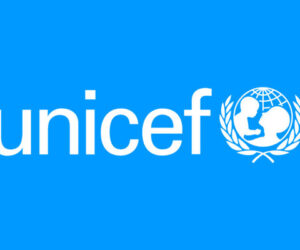In today’s volatile global landscape, risk and compliance leaders are confronted with unprecedented disruption.
Geopolitical instability, shifting regulatory frameworks, cultural upheavals, and workforce transformations impose challenges that are not just complex but relentless.
The Global South stands as a prime example of this tension, where the stakes are significantly higher and the margins for error are intolerably thin.
As we move into 2025 and beyond, it is evident that traditional compliance checklists and reactive governance are no longer sufficient.
The Global South, characterized by its unique socio-economic dynamics and rapid digital transformation, requires a new calibre of leadership, leaders who are resilient, ethical, and deeply attuned to the cultural context in which they operate.
We must adapt and confront this challenge head-on.
Beyond Compliance: Building Adaptive Cultures
In today’s rapidly changing environment, achieving success goes beyond simply adhering to regulations; it necessitates the establishment of resilient teams that not only withstand challenges but also adeptly navigate uncertainty.
This resilience is fundamentally intertwined with ethical leadership, which plays a pivotal role in fostering trust across diverse communities and stakeholder groups.
Organizations are tasked with the imperative of developing a culture that not only welcomes change but actively encourages it, transforming the concept of compliance from a mere obstacle into a powerful catalyst for innovation and integrity. This cultural shift is essential in regions characterized by intricate and continually evolving regulatory landscapes, where the ability to adapt is not just advantageous but essential for survival.
Leaders need to recognize that compliance should not be seen as a standalone requirement but rather integrated into the core identity and operations of the organization. This approach requires active alignment of compliance initiatives with the overall business strategies and goals, enabling the organization to flourish even in the face of complex regulations.
By taking an active role in this process, leaders have the power to guide their teams toward embracing change with a positive outlook.
They can clarify that compliance is not just a set of rules to be followed; it is a strategic asset that enhances accountability throughout the organization.
This approach creates a dynamic environment where ethical decision-making is paramount, driving improved outcomes and cultivating a unified workplace culture.
Leaders must foster open discussions and actively guide the integration of compliance into daily practices. By doing so, they can inspire their teams to embrace change as a powerful gateway to growth and improvement, transforming challenges into valuable opportunities.
The Ethical Imperative
Ethical leadership plays a crucial role in today’s global landscape, particularly within the Global South, where persistent challenges such as corruption, weak governance, and socio-economic disparities are prevalent.
In this context, compliance leaders are urged to transition from their traditional role of merely enforcing policies and regulations to becoming proactive champions for transparency and accountability.
This shift is not only about adhering to rules; it involves fostering a culture of integrity that permeates every level of the organization.
To achieve this, compliance leaders must adopt a broader and more nuanced understanding of what it means to be successful. Success should no longer be narrowly defined by the absence of risks or violations but should encompass the promotion of ethical behaviour as a fundamental operational principle.
This requires creating environments where ethical conduct is not only encouraged but celebrated, and where employees feel empowered to voice their concerns and take ethical action.
Ethical leadership is not just a buzzword—it’s a dynamic call to action for transformative change! Picture this: tackling the root causes of unethical behaviour head-on instead of merely addressing the symptoms. It’s all about igniting trust and fostering transparency. By doing so, compliance leaders have the incredible opportunity to create resilient organizations that are not only capable but also ready to thrive amidst the complexities of today’s challenges. Let’s embrace this exciting journey toward a brighter, more ethical future!
This thrilling evolution in leadership is setting the stage for a dynamic and sustainable framework that emphasizes ethical practices at its core. It’s more than merely implementing changes; it involves igniting transformative and enduring enhancements within organizational culture.
This approach fosters an environment where values are prioritised, promoting integrity, transparency, and accountability.
As organisations participate in this cultural revolution, they will enhance their internal dynamics and strengthen their relationships with stakeholders, including employees, customers, and the wider community.
By cultivating trust and collaboration, we will create a more engaged workforce and significantly boost stakeholder satisfaction.
Prepare to witness a transformative shift in how organisations operate and connect, paving the way for a thriving culture that champions ethical behaviour and ensures sustainable growth for the future!
Empowering the Workforce
The workforce is experiencing an exciting transformation, especially in the Global South, where a surge in the youth population is perfectly aligned with increasing digital literacy. This dynamic shift creates a remarkable opportunity for a talent revolution in the region. To harness this potential, leaders in risk and compliance should prioritize actively engaging with this emerging workforce and tapping into their fresh perspectives and innovative ideas. Embracing this change can lead to a brighter, more vibrant future for everyone involved.
One of the most impactful strategies to achieve this is by investing in holistic training programs. These programs do more than just enhance technical skills; they ignite critical thinking and equip individuals with powerful problem-solving abilities.
Mentorship initiatives play a crucial role in shaping the careers of young professionals, providing them with invaluable insights and support as they navigate their journey.
To create a thriving workplace atmosphere, it’s vital to establish inclusive policies that empower every employee, no matter their background, to take an active role in governance and decision-making.
By fostering an environment where diverse voices are heard, we can unlock creativity and innovation, paving the way for a brighter future for all!
When organizations empower their workforce like this, they unleash a wave of resilience and adaptability that transforms their governance approach. This dynamic strategy not only keeps pace with the ever-changing market demands but also positions them to thrive in an exciting and competitive landscape!
A Call to Action
The future of risk and compliance in the Global South embodies not just survival amid disruption, but a remarkable opportunity for proactive leadership to navigate and shape transformative changes. As we approach 2025 and beyond, it is clear that organizations must prioritize resilience, ethical practices, and adaptability to truly thrive in an ever-evolving landscape.
Today’s visionary leaders are poised to build institutions that not only withstand the turbulence of change but also emerge stronger and more effective. This requires embedding a robust culture of resilience throughout their organizations, ensuring that systems are not merely reactive but strategically aligned to anticipate and adeptly respond to potential challenges.
In the face of ongoing change, we can reframe compliance as not just an obligation, but as a true opportunity for growth.
Visionary organizations will see compliance as a vital bridge that fosters sustainable development and creates a positive societal impact.
By weaving compliance into their core strategic framework, these organizations can harmonize their operations with ethical standards and regulatory mandates, enhancing their reputational capital and building unwavering stakeholder trust.
Conclusion
To tackle the challenges of tomorrow, we must go beyond the bare minimum of legal compliance and embrace innovative frameworks that champion broader societal goals.
It’s crucial for policymakers, business leaders, and all stakeholders to join forces in fostering an environment where compliance doesn’t just meet standards, but actively drives meaningful change.
By taking this proactive approach, we can cultivate resilient, responsible, and impactful organizations, especially in the Global South—ensuring a brighter future for all.
![]()











